
Jewish evacuees from Gaza prone to
PTSD
HAIFA (Press Release)—New
research at the University of Haifa conducted among
Israelis evacuated from settlements in the Gaza strip
shows a higher rate of PTSD and major depression than in
the years prior to the evacuation.
"Following the
disengagement, new problems arose among the evacuees
such as housing and employment, so it is reasonable to
assume that it will take a while for the incidence of
depression and post traumatic stress to return to the
pre-evacuation levels," said Oren Shapira, who conducted
the research along with Dr. Daphna Canetti-Nisim, of the
National Security Studies Center at the University of
Haifa and Prof. Stevan Hobfoll, of Kent State
University.
The research began the
week before the disengagement, when 190 residents of
Gaza and Gush Katif were evaluated for Post Traumatic
Stress Disorder. PTSD is characterized by "reliving"
traumatic incidents, dreaming about them, avoiding
incidents or places related to the event, heightened
arousal, sleep disorders, concentration problems and the
like. The results revealed that during the period of the
disengagement, 26% of the residents reported suffering
from a combination of these symptoms which is sufficient
for a PTSD diagnosis. One year later, 13.7% of the
residents reported symptoms fitting the same diagnosis.
The researchers also
evaluated the incidence of major depression, which is
characterized by a combination of symptoms such as: mood
disturbances, loss of interest and enjoyment in
activities, changes in sleep or eating habits and
feeling of worthlessness. In the week before the
disengagement, 17% of the residents reported symptoms
fitting the diagnosis of major depression whereas one
year later, 5.8% of the respondents did.
Despite the decrease, the
results are still higher than those recorded among
residents of Judea, Samaria and Gaza in 2004, at the
height of the second intifada, when researchers found
6.5% of the residents suffering from PTSD and 3.2%
suffering from major depression. At that time, the rate
of PTSD among Israel's entire Jewish population was
measured at 6.6%.
According to Shapira, the
year 2004 was characterized by many terror attacks
against this population. The fact that the incidence of
psychological distress among the evacuees is still
higher now than in 2004, confirms the high rate of PTSD
and depression.
The preceding story was provided by the
University of Haifa
. 
Military court sentences terrorist to
life in prison
JERUSALEM (Press
Release)—The
Military Court of Samaria sentenced Muhammad Kharanba
on
August 20,
to life-imprisonment. Kharanba was
involved in the killing of an IDF soldier, Roee Fargon,
at a checkpoint near the Israeli community of Beqa'ot,
August 19, 2006. The soldier was killed when a gunman
opened fire at the soldiers manning the checkpoint. The
soldiers returned fire and killed him.
Kharanba was convicted of the following
crimes:
● Involvement in the planning of the
August 19 attack at the checkpoint.
● Delivering operational details
regarding the checkpoint to the gunman, including the
timing of the changing of the guard.
● Kharanba provided the gunman with
his own working-permit in order to allow him to reach
the checkpoint and execute the attack.
● Kharanba drove the gunman in his taxi to the scene of
the attack, the Hamra checkpoint, on August 19, 2006.
The evidence indicates that Kharanba
promised the gunman that he would continue to assist
future attackers in the same way.
The
preceding story was provided by Israel Defense Forces
(Return to top)
Please
click below to read more about San Diego Jewish Academy, the
premier K-12 day school in Carmel Valley

United Nations renews warnings about deteriorating economic
conditions in Gaza
UNITED NATIONS, N.Y. (Press Release)—A
senior United Nations official in the Middle East today
voiced concern about the deteriorating humanitarian
situation inside the Gaza Strip, where the closure of
border crossings and other restrictions have cut exports
and forced factories to shut, leaving tens of thousands
of Palestinians without jobs or income.
Kevin Kennedy, the Deputy UN Special
Coordinator for the Middle East Peace Process, said in a
statement that while the basic humanitarian needs of
Gaza’s estimated population of 1.4 million people are
largely being met, the conditions remain very difficult.
UN officials have warned repeatedly in
recent weeks that the closure of border crossings since
intra-Palestinian violence flared in May and June and
Hamas took control of the territory is threatening
Gaza’s economic sustainability.
Factories in import-dependent industries
have had to close because of a lack of basic materials,
and other businesses are also suffering because they are
unable to export their products.
Mr. Kennedy said “tens of thousands of
people have lost their jobs and income” as a result.
He added that UN relief agencies are
facing increased demands to provide humanitarian
assistance and “much remains to be done” to help the
people of Gaza.
The preceding story was provided by the
United Nations
(Return to top)
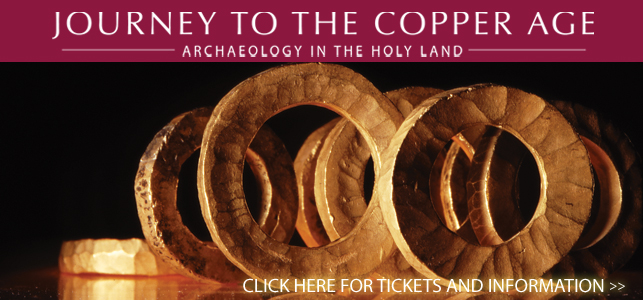
Feinstein welcomes Iran's release of Esfandiari
WASHINGTON, D.C. (Press Release)—The
Iranian government today announced that it had released
Iranian-American scholar Dr. Haleh Esfandiari from
prison. Dr. Esfandiari, who had been imprisoned since
May, is one of four Iranian-Americans that have been
detained in Iran in recent months.
 The following is a brief statement from
U.S. Senator Dianne Feinstein (Democrat,
California). The following is a brief statement from
U.S. Senator Dianne Feinstein (Democrat,
California).
“I am
delighted that the Government of Iran has released Dr.
Esfandiari from prison. I thank the Iranian Government
for today’s action. The next step is to allow her
to leave the country and to release the three remaining
Iranian-Americans that are being falsely detained. I
hope that both the Iranian and the U.S. Government will
use diplomacy to resolve this matter and other important
policy disputes.”
The
preceding story was provided by the office of Senator
Dianne Feinstein

Lauder, Kantor ask action against
Magyar
Garda
WASHINGTON, D.C. (Press Release)—World Jewish Congress
president Ronald S. Lauder and European Jewish Congress
president Moshe Kantor have called the planned formation
of an armed guard within the extreme-right Hungarian
movement ‘Jobbik Magyarországért Mozgalom’ [Movement for
the Better Hungary] an “extremely alarming development.”
In a letter to Hungary’s prime minister Ferenc Gyurscany,
Lauder and Kantor wrote that the “impending creation of
an armed guard, under the false guise of ‘sporting and
shooting clubs’, with uniforms resembling those worn by
fascists in World War II,” was a danger to democracy and
had to be stopped. They urged Gyurscany to do his
“urgent utmost to see to it that any political party
which manifests expressions of hatred and bigotry,
whether by speech, threats to arm, and other incitements
to racial violence, is stopped.”
The ‘Magyar
Garda’ [Hungarian Guard] will apparently be formed later this week at a
swearing-in ceremony at Buda Castle on 25 August by party leaders. The guard’s
founder, Gabor Vona, has claimed that 300 people have applied to join the group.
The uniforms of the guards will reportedly carry the red and white Arpad stripes
used by the pro-Nazi ‘Arrow Cross’ movement during World War II, whose members
murdered thousands of Jews and were involved in the deportation of hundreds of
thousands to the Nazi death camps.
Lauder and Kantor wrote that as a member of the European Union and the Council
of Europe, the Hungarian government should “immediately take all the necessary
steps to ban this threat.” Jobbik Magyarországért Mozgalom is not represented in
the national parliament but has representatives on several local councils.
The preceding story was provided by the World Jewish
Congress. Here is
a link to a copy of the letter.
(Return to top)
.
German police arrest 4 for cemetery
vandalism
IHRINGEN, Germany (Press Release)—Four
young men have been arrested for vandalizing a historic
Jewish cemetery in the southwestern German town of
Ihringen on 11 August.
The four men, aged between 15 and 28, are apparently
connected to right-wing extremist groups. Three of them
confessed to the vandalism following their arrest. In
most incidents of this sort the perpetrators remain at
large. However, in this case an eight-person
investigation unit was set up by police, and a citizens
group pressed local and state authorities to take the
incident seriously.
More than 70 of the 200 gravestones at the cemetery were
knocked off their pedestals. The same cemetery had
already been vandalized in 1990 and 1991. Police are
still investigating the current crime, and the
prosecutors emphasized that they were also committed to
resolving the cases from 1990 and 1991.
The preceding story was provided by the
World Jewish Congress
Israel sends medical
supplies for Peru quake
victims
JERUSALEM (Press Release)—The Israeli Ministry of Foreign Affairs, in
coordination with the Peruvian health authorities, donated humanitarian aid to
victims of the earthquake that struck Peru last week. The shipment contained
antibiotics for children and adults, pain-killers, IVs, bandages, etc. – 1.5-2
tons of medicines and medical equipment.
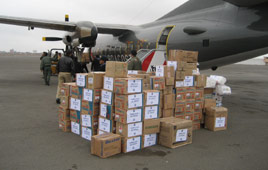 The
aid was flown by a Peruvian military plane to the city of Pisco (which was hard
hit by the earthquake). Ambassador Walid Mansour accompanied the shipment and
delivered it personally to the Peruvian authorities. An emergency command post
was set up in the local army base to assist the victims of the earthquake.
Ambassador Mansour took advantage of the visit to assess the progress of the aid
work. The
aid was flown by a Peruvian military plane to the city of Pisco (which was hard
hit by the earthquake). Ambassador Walid Mansour accompanied the shipment and
delivered it personally to the Peruvian authorities. An emergency command post
was set up in the local army base to assist the victims of the earthquake.
Ambassador Mansour took advantage of the visit to assess the progress of the aid
work.
The preceding story was provided by
Israel's Ministry of Foreign Affairs
ADL renews challenge to CAIR to denounce terror
NEW YORK (Press Release)—The
Anti-Defamation League (ADL) today said it was deeply troubled by the failure of
the leadership of the Council on American-Islamic Relations (CAIR) to address
its past affiliation with groups such as the Islamic Association for Palestine
and to clearly and unequivocally condemn terrorists by name.
"As an organization representing itself as
America's largest Islamic civil liberties group with a mission to enhance
understanding of Islam and encourage justice and mutual understanding, it is
deeply troubling that CAIR simply refuses to issue a clear and unequivocal
condemnation of terrorists and terrorism," said Abraham H. Foxman, ADL National
Director. "If CAIR truly repudiates acts of terror and murder, we would welcome
a simple declaratory statement that no cause, no matter how just it may be,
justifies the use of suicide killers, rockets or other means to target
civilians."
ADL had written to CAIR in December 2006,
after the national Muslim organization had issued statements condemning the
Holocaust denial conference in Tehran and the Iranian cartoon contest and
participated at an event at the U.S. Holocaust Memorial Museum memorializing
victims of the Holocaust.
In the letter to CAIR Executive Director
Nihad Awad the League said that, "If CAIR truly seeks to 'challenge those who
would fan the flames of anti-Semitism' (CAIR press statement, December 13,
2006), it must address its past affiliation with groups such as the Islamic
Association for Palestine whose ideology is rooted in the same virulent
anti-Semitism that produced and pervaded the Holocaust denial conference in
Tehran."
To date, ADL has received no response to
its letter. Instead, CAIR has accused ADL of "seeking to hinder the due process
rights of American Muslims by using smears and exclusionary tactics."
Mr. Foxman said: "No matter how heartfelt
CAIR's statements on Holocaust denial may be, this organization can never be
fully accepted in the Jewish community until it clearly and unequivocally
condemns by name terrorists – such as Hezbollah and Hamas – that seek to kill
Jews and destroy Israel; and denounces the anti-Semitic rhetoric and support for
terror organizations that regularly occurs at rallies sponsored by CAIR and
other Muslim organizations in the United States."
ADL's online
backgrounder on CAIR notes
that:
• CAIR was founded by several leaders of
the Islamic Association for Palestine (IAP), a Hamas affiliated anti-Semitic
propaganda organization.
• While CAIR condemns terrorism in general terms, it has refused to condemn by
name terrorist groups - such as Hamas and Hezbollah - that seek to destroy
Israel and kill Jews.
• CAIR repeatedly asserts that U.S.
counter-terrorism initiatives are directed by the pro-Israel lobby.
• Since the outbreak of the second
Palestinian Intifada in 2000, CAIR has participated in and
endorsed
several rallies where support for terrorist organizations was undeniable.
The preceding story was provided by the Anti-Defamation League
Truth and
Consequences: Armenians, Turks and Jews
{Editor's Note: David A. Harris, executive
director of the American Jewish Committee, weighs the long-standing debate
between the Turks and the Armenians over whether mass murders of Armenians in
the early 20th century was a genocide like the later Holocaust against the Jews.
Our forum question is "What position should the Jewish community take regarding
calls for recognition of the 'Armenian genocide' and why" Please send your
thoughts to sdheritage@cox.net}
By David A. Harris
NEW
YORK —From 2000 to 2002, I led a graduate seminar entitled "Post-Holocaust
Ethical and Political Issues” at Johns Hopkins
University’s School of Advanced International Studies. Among the
topics covered was the politics of memory.
One of
the case studies we explored was the controversy surrounding language and its
power. We looked in depth at the massacre of Armenians and how its depiction had
become a subject of fierce debate, primarily between Armenians, who insisted on
calling the events of 1915 a genocide, and Turks, who adamantly refused to
countenance the g-word. Essentially, this was a zero-sum game. Either one
supported the Armenian or the Turkish position, whether for historical or
political reasons, but neither side allowed room for compromise.
The
basic Armenian argument was that up to 1.5 million Armenians were deliberately
targeted and massacred by the Ottoman Empire, eight years before the modern Turkish Republic came into being. At the time, the
word genocide didn’t exist. It was Raphael Lemkin, a Polish-born Jew, who coined
the term. The Holocaust was the most immediate frame of reference for him, but
he was also haunted by the slaughter of the Armenians – and by the need to
prevent a repeat of any such occurrences – throughout his career. But had it
been in use, it no doubt would have been invoked by Ambassador Henry Morgenthau,
the U.S. envoy to
Turkey at the time and one of the
primary sources on the tragedy cited by the Armenians.
No,
replied the Turks. This was a time of war. The Armenians sided with Russia, the enemy. Many people, both
Turks and Armenians, were killed, but that was the regrettable, if inevitable,
consequence of conflict, and not a deliberate campaign to wipe the Armenians off
the face of the earth, as the Nazis later sought to do to the Jews.
In
recent years, of course, the survivors and eyewitnesses have disappeared. But
each side has marshaled as much documentary evidence as it could to buttress its
assertion. Yet neither side has been talking to the other. Instead, both have
been appealing to the rest of the world, seeking supporters.
Not
surprisingly, each has sought to draw the Jews to its ranks. The Jews’ moral
voice, they reckoned, far exceeds actual numbers. The people of the Shoah are
best positioned to tip the scales in one direction or the other.
The
Armenian position has been straightforward. As victims of the Holocaust, who can
better understand the Armenian ordeal and anguish than the Jews? Fearful of the
danger of Holocaust denial, aren’t the Jews most aware of the slippery slope of
distorting historical truth? And wasn’t it Adolf Hitler who reportedly asked,
“Who still talks nowadays of the extermination of the Armenians?”— in effect,
paving the way for the Final Solution?
Meanwhile, the Turkish stance has been that Jews shouldn’t simply accept the
Armenian version of history lock, stock and barrel, as it’s fraught with
distortion and deceit, but rather bear in mind the traditional Turkish welcome
of minority communities, especially the embrace of dispersed Jews from
Spain
by the Ottoman Empire at the end of the 15th
century.
Moreover, Turkish leaders have also at times taken a tougher line, suggesting,
in barely veiled language, that a Jewish acceptance of the Armenian version of
history could have negative consequences for other Jewish interests, whether in
Turkey or beyond.
And it
is in this vise that many Jews have lived for years, essentially pitting
principle against pragmatism. For armchair observers, that may look like an easy
choice, but, in the world of policy, where actions can have real-life
consequences, it’s anything but.
Look at
successive governments of the
United States,
whether under Democratic or Republican leaders. All have reached the same
conclusion: Turkey is of vital importance to U.S. geo-strategic interests,
straddling as it does two continents, Europe and Asia, bordering key
countries—from the former Soviet Union to Iran, Iraq and Syria—and serving as
the southeastern flank of NATO. Each administration has essentially punted when
asked about the Armenian question, seeking to discourage the United States
Congress from recognizing the events of 1915 as genocide, while arguing that a
third-party parliamentary body isn’t the right venue to settle a heated
historical dispute.
And now
I come back full circle to my Johns Hopkins classroom. I had four or five
Turkish students in the course. All but one proudly defended Turkey’s historical record,
stubbornly refusing to consider any competing narrative. But there was one young
woman who, on reading the assigned material and much more, came to me and said
that for the first time she doubted the official Turkish version of events.
There were simply too many compelling accounts of the suffering of Armenians to
swallow whole the Turkish line. She then went a step further and shared her
thinking with our class. Regrettably, the other Turkish students distanced
themselves from her, but the other students admired her for her courage. They
instinctively understood that it wasn’t easy for her to express her sorrow and
confusion, but that, under the circumstances, it seemed the right thing to do.
I, too, admired her.
I have
a strong connection to
Turkey, a country I have visited on
numerous occasions and to which I feel very close. Few countries have a more
critically important role to play in the sphere of international relations. I
remain grateful to this day for the refuge that the Ottoman
Empire gave to Jews fleeing the Inquisition. I am intimately
connected to the Turkish Jewish community and admire their patriotism and
enormous contribution to their homeland. I deeply appreciate the link between
Turkey and
Israel, which serves the best
interests of both democratic nations in a tough region. And I value
Turkey’s role as an anchor of
NATO and friend of the United
States.
At the
same time, I cannot escape the events of 1915 and the conclusions reached by
credible voices, from Ambassador Morgenthau to Harvard professor Samantha Power,
the Pulitzer Prize-winning author of A Problem from Hell: American and the
Age of Genocide, to the United States Holocaust Memorial Museum, about the
nature of what took place: it was a genocide, they determined, albeit one that
occurred more than thirty years before the term was coined.
From my
experience in tackling difficult relationships, I believe that engagement, not
avoidance, is the best strategy. In a perfect world, Armenian and Turkish
historians would sit together and review the archival material, debate
differences, and seek a common understanding of the past. To date, that hasn’t
happened in any meaningful way. I continue to hope that it will. It should. We
at AJC have offered our services, if needed, to help facilitate such an
encounter. Ninety years of distance ought to allow for the creation of a “safe”
space to consider contested issues.
Meanwhile, as the issue once again heats up in the
United States, it’s important to be clear. In a
book entitled Holocaust Denial, published by the American Jewish
Committee in 1993, the author, Kenneth Stern, an AJC staff expert on the
subject, noted: “That the Armenian genocide is now considered a topic for
debate, or as something to be discounted as old history, does not bode well for
those who would oppose Holocaust denial.”
He was
right. Picture a day when a muscle-flexing Iran
or
Saudi Arabia
seeks to make denial of the Holocaust a condition of doing business with other
countries. Sound far-fetched? It shouldn’t.
We have
many interests as a Jewish people. Protecting historical truth ought to be right
up there near the top of the list.
The preceding commentary was provided by the
American Jewish Committee
ADL revises its stand: it was a
'genocide'
NEW YORK—
Abraham H. Foxman, National Director of the Anti-Defamation League (ADL) today
issued the following statement:
In light of the
heated controversy that has surrounded the Turkish-Armenian issue in recent
weeks, and because of our concern for the unity of the Jewish community at a
time of increased threats against the Jewish people, ADL has decided to revisit
the tragedy that befell the Armenians.
We have never negated but have always described
the painful events of 1915-1918 perpetrated by the Ottoman Empire against the
Armenians as massacres and atrocities. On reflection, we have come to share the
view of Henry Morgenthau, Sr. that the consequences of those actions were indeed
tantamount to genocide. If the word genocide had existed then, they would have
called it genocide.
I have consulted with my friend and mentor Nobel
Laureate Elie Wiesel and other respected historians who acknowledge this
consensus. I hope that Turkey will understand that it is Turkey's friends who
urge that nation to confront its past and work to reconcile with Armenians over
this dark chapter in history.
Having said that, we continue to firmly believe
that a Congressional resolution on such matters is a counterproductive diversion
and will not foster reconciliation between Turks and Armenians and may put at
risk the Turkish Jewish community and the important multilateral relationship
between Turkey, Israel and the United States.
The
preceding story was provided by the Anti-Defamation League
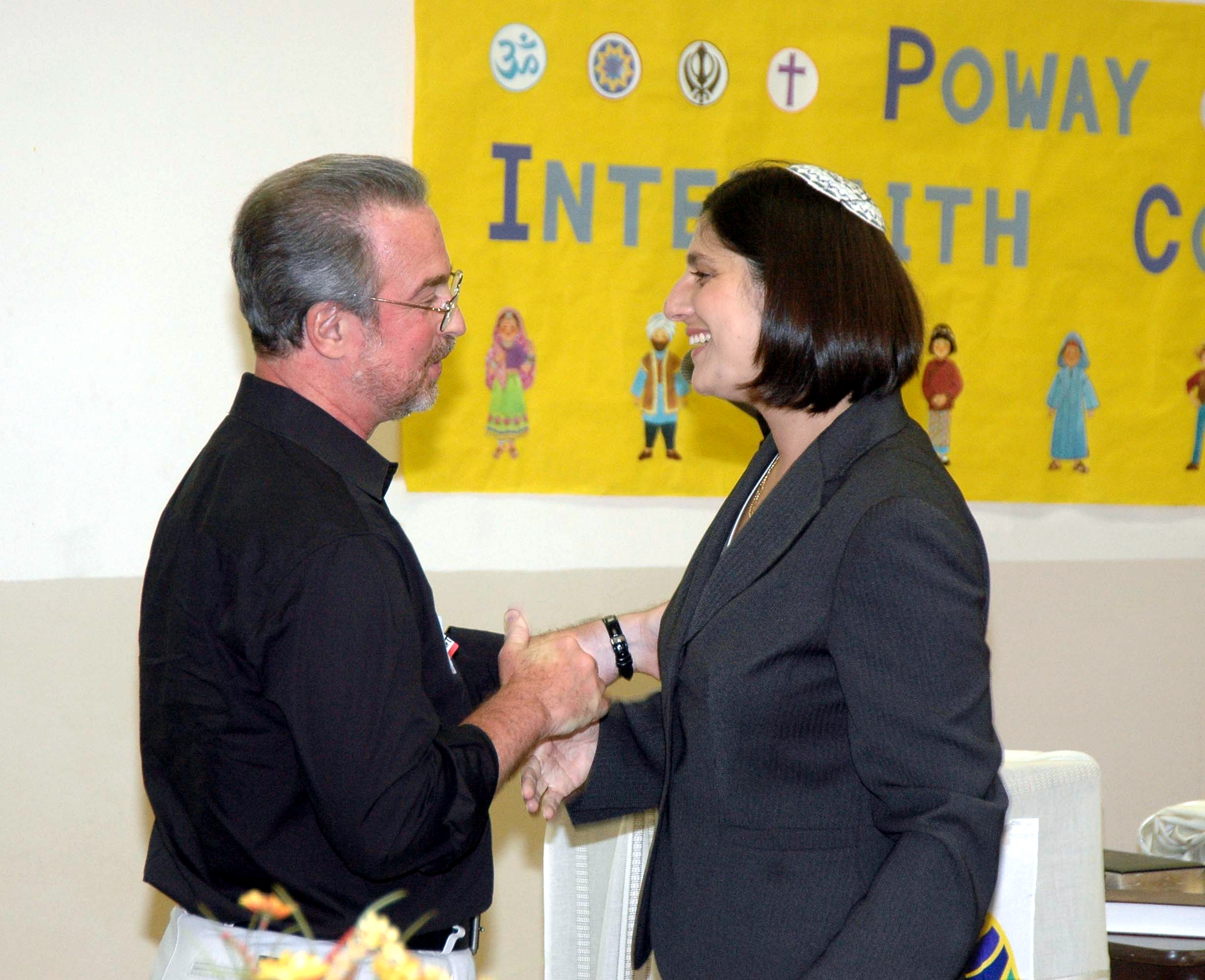
GREETINGS—Pastor Glen Larsen of Poway Community Church welcomes Rabbi Tamar Malino of Temple
Adat Shalom before her talk about Judaism earlier this month before the Poway Interfaith Council
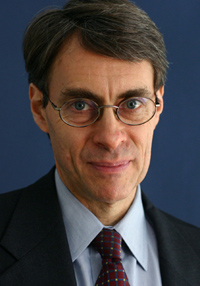 AROUND THE TOWN—The executive director of Human Rights Watch, Kenneth Roth, is coming to San Diego to deliver a lecture at 7 p.m., Thursday, September 20, which is the night before Kol Nidre. A reception will follow his lecture at the University of San Diego's Joan B. Kroc Institute for Peace & Justice. The center picked up from the Human Rights Watch website the background information that "roth was drawn to the human rights cause in part by his father's experience fleeing Nazi Germany in 1938." AROUND THE TOWN—The executive director of Human Rights Watch, Kenneth Roth, is coming to San Diego to deliver a lecture at 7 p.m., Thursday, September 20, which is the night before Kol Nidre. A reception will follow his lecture at the University of San Diego's Joan B. Kroc Institute for Peace & Justice. The center picked up from the Human Rights Watch website the background information that "roth was drawn to the human rights cause in part by his father's experience fleeing Nazi Germany in 1938."
Kenneth Roth
CONGREGATIONAL CURRENTS—Rabbi Tamar Malino of Temple Adat Shalom recently spoke at the Poway Community Church as part of an ongoing summer program of interfaith presentations by representatives of various religions in the community. According to
Lori Mathios,
who handles publicity for the temple, "Our Rabbi gave a brilliant presentation and answered questions from guests and clergy with ease. One guest, who remains anonymous, was so impressed, that he gave a very generous sum to open a non-profit bank account for future programs."
CYBER-REFERRALS— We thank contributors who pass along stories of interest for your benefit:
●Abe & Bea Goldberg noted that PM Caregivers has a bumper sticker promotion with jokes about becoming old. One features a saying of George Burns: "It's nice to be here. At my age, it's nice to be anywhere.' Here's the link
●Israel's Consulate General
in
Los Angeles, without comment, directs attention to an article in the Jerusalem Post quoting the Al Aqsa Martyr's Brigade as saying Israel has arrested two fighters previously given amnesty, so the brigade no longer feels bound to honor agreements with Israel. Here's the link
●Jay Jacobson
directs our attention to a speculative piece about the fortifications and land purchases Hezbollah is making north of the Litani River, and what the strategic intent of these developments might be. Here is the link.
●Hillel Mazansky
saw the item on the BBC report about Alex Kurzem, a Jew who was brought up secretly by a Nazi officer. Here's the link.
●We at the
San Diego Jewish World
greatly
appreciated the first item in Diane Bell's column in the San Diego Union-Tribune about Yoni Peres going "to bat" for us. Here is the link.

Click the ad above to go to the "I'm there for you baby" website

Second Avenue Klezmer Ensemble
Second Avenue Klezmer Ensemble to help Adat Shalom usher in Selichot with Sept. 8 concert
SAN DIEGO (Press Release)— It has been traditional for many centuries for Jews to come together on a Saturday evening at least four days prior to Rosh Hashanah to begin the period of self-preparation for the great days to come. These penitential prayers are called Selichot - prayers for forgiveness. They are part of the effort to attune the human heart to the experience of the High Holy Days. The observance of Selichot is a moving and inspirational prelude to the upcoming Days of Awe.
Temple Adat Shalom (TAS) will gather on Saturday, September 8, at 7:30 p.m. to observe Selichot. Prior to the service, and back by popular demand, the congregation looks forward to a heartwarming and joy-filled concert by San Diego’s own Second Avenue Klezmer Ensemble. The group is known for its unique blend of Jewish folk music of Eastern Europe with the songs of the Yiddish theatre. The Ensemble consists of founding members, singer Deborah Davis and clarinetist Robert Zelickman who are joined by guitarist Jiri Svoboda, bassist Bertram Turetzky and drummer Jon Wishnuff.
For Deborah Davis, the love of this music stems from another source—the memory of her immigrant grandmother who introduced her to the music of her youth and the songs of New York’s Yiddish musical theatre. This Yiddish musical theatre, which once thrived along Second Avenue, linked the immigrants to their old country and their New World. It produced a musical tradition that has since melded with the folk music of Eastern Europe and, in the process, has redefined Klezmer itself.
The group’s repertoire encompasses traditional Klezmer music -- shers, bulgars, horas, freylakhs and waltzes. It also includes Cantorial, Ladino and Israeli pieces, in addition to the songs of the Yiddish theatre and the folk songs of Eastern Europe. The music of the Ensemble reflects their desire to draw on Klezmer’s past, perform it in the present and contribute to its future.
The Religious Practices Committee of Temple Adat Shalom will host a reception immediately following the program. Dessert and coffee will be served at approximately 8:30 p.m. in the courtyard outside the Social Hall.
The Selichot service, led by Rabbi Tamar Malino and Cantor Lori Frank, will begin at 9:00 p.m. in the sanctuary. Congregants and members of the community are encouraged to stay and attend this worship service.
The preceding story was provided by Temple Adat Shalom

Please click on the above ad to
visit the Humanistic Jewish
Congregation's website
Tikkun Olam projects win prizes for Amanda Haworth of La Jolla, Justin Sachs of Carlsbad
SAN FRANCISCO (Press Release)—Two San Diego area teens are among five outstanding California teens named winners of a new award for community service that comes with a cash prize of $36,000. Amanda Haworth, 18, La Jolla, and Justin Sachs, 19, Carlsbad, were named winners of the Diller Teen Tikkun Olam award. The award was created to recognize teens who have initiated an exceptional social action project that helps to repair the world (tikkun olam). The awards will be presented at a luncheon in San Francisco on August 28.
 Haworth, 18, a student at La Jolla High School, raised $12,000 to pay for a field trip for 410 San Diego high school juniors to visit the Museum of Tolerance in Los Angeles after she heard anti-Semitic and simply ignorant remarks about Jews and the Holocaust. The trip, which had been part of the school curriculum in the past, had been discontinued because of costs. It is now a mandatory field trip in her high school. The Jewish Community Foundation of San Diego nominated Haworth for the award. Haworth, 18, a student at La Jolla High School, raised $12,000 to pay for a field trip for 410 San Diego high school juniors to visit the Museum of Tolerance in Los Angeles after she heard anti-Semitic and simply ignorant remarks about Jews and the Holocaust. The trip, which had been part of the school curriculum in the past, had been discontinued because of costs. It is now a mandatory field trip in her high school. The Jewish Community Foundation of San Diego nominated Haworth for the award.
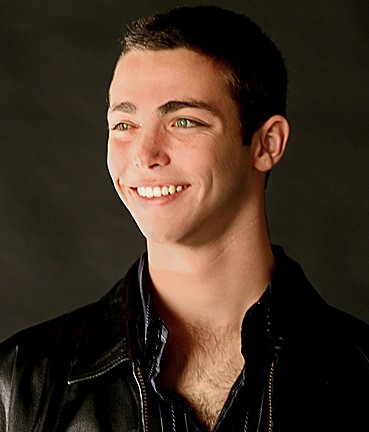 Sachs, 18, a student at La Costa Canyon High School, developed the Tikkun Project, a synagogue-based social action program for teens. The two-pronged goal of the monthly program for teens at Temple Solel in Cardiff-by-the-Sea is to inspire them to take an active role in their community and to develop leadership skills. Among the group’s actions are sending care packages to troops in Iraq; a 1000 Sandwich-a-Thon and canned food drive to feed the homeless; participating in a Walk for Autism Research; and a three-day house building trip to Tijuana, Mexico. They have raised funds for each effort and sell bagels, orange juice and coffee regularly at synagogue functions to support varying causes. Sachs, 18, a student at La Costa Canyon High School, developed the Tikkun Project, a synagogue-based social action program for teens. The two-pronged goal of the monthly program for teens at Temple Solel in Cardiff-by-the-Sea is to inspire them to take an active role in their community and to develop leadership skills. Among the group’s actions are sending care packages to troops in Iraq; a 1000 Sandwich-a-Thon and canned food drive to feed the homeless; participating in a Walk for Autism Research; and a three-day house building trip to Tijuana, Mexico. They have raised funds for each effort and sell bagels, orange juice and coffee regularly at synagogue functions to support varying causes.
The other 2007 Diller Teen Tikkun Olam Award winners are Allison Hoffman, 18, Los Altos; Erich Sorger, 17, Beverly Hills; and Shira Shane, 19, Encino.
The awards are funded by the Helen Diller Family Foundation, a supporting foundation of the Jewish Community Endowment Fund of the Jewish Community Federation of San Francisco, the Peninsula, Marin and Sonoma Counties.
YADA (Youth Alliance for Darfur) - Allison Hoffman
After initiating several social action programs at Castilleja School, her high school in Los Altos, Allison reached out to other Peninsula and San Francisco high schools to create a coalition of high school students working to end the genocide in Darfur, Sudan by raising awareness and fundraising to support humanitarian aid.
TAG (Teens Against Genocide) - Shira Shane
Shira organized 25 high schools (public and private) in Los Angeles and the San Fernando Valley to take action against human rights atrocities in general and particularly the genocide in Darfur. They organized a rally, among other things, and raised $10,000 to be used for the building of wells and medical clinics in Sudan.
Dollars for Dwaynes – Erich Sorger
Erich and several colleagues pick up furniture, appliances, clothes and other items left on the sidewalks in Westwood by students and destined to the city dump, and deliver them to National Council for Jewish Women’s thrift shop where they are sold. As a result, he estimates $16,700 has been raised and donated by NCJW to groups that help the needy.
The preceding story was provided by
Diller Teen Tikkun Olam

{Click the above ad for more information

{Marc Kligman, who combines being a sports agent with his life as an observant Jew, invites you to listen. Click on the ad above for more information}.
Spending a 38th anniversary in search of a blasted winery
KELOWNA, Canada—Some Jewish men buy their wives diamonds and take their Mrs. to London, Paris or Rome to celebrate a 38th wedding anniversary. Not me. I took her to Kelowna and presented her with a “Blasted Church.” I would not be surprised if you were to ask: “You took her where and gave her what?”
We were making our first foray in the Canadian Northwest in about 21 years. After a wonderful four days in Banff where we hiked into Johnston Canyon to view seven different waterfalls, canoed on a lake and generally enjoyed ourselves taking in the dining spots, we had decided to drive through the Canadian Rockies to Kamloops, a half way spot on the road to Vancouver.
“There’s nothing in Kamloops,” Barrett our concierge volunteered. “You should take Canada 1 to Route 3 and then head south on 97A to Kelowna.”
“Where?” I asked.
“It’s in the heart of Canada’s wine region,” he responded.
“Canada has a wine region?” I managed in utter amazement. Have you ever seen Canadian wine for sale in the U.S.? I hadn’t.
My wife and I immediately consulted one of the Canadian tour books she had purchased in San Diego. To our amazement, it had a few pages on Kelowna with recommendations of places to stay in that city and in the Okanagan Valley. I had never heard of either, nor of the monstrously large Lake Okanagan in British Columbia.
Since we were traveling into the great unknown, we decided on a rather high-end hotel with an historic background. The Eldorado Inn situated on the shore of Lake Okanagan sounded too good to be true.
According to the guide book, the inn had been floated down the lake to its present site back in the early 1900's. Once installed, it promptly burned to the ground, but was rebuilt using its original plans. Located on the east side of the lake, the Eldorado features, among other things, a lovely restaurant overlooking the lake and its small marina. We immediately booked a window table for that evening’s dinner, but since it was too early to dine, we set out on our quest to find the “Burnt Church” winery.
Barrett, our trusty Banff concierge, had recommended that we sample “Burnt Church’s” vintages when in the Kelowna area. We checked with the Inn’s bartender, he knew of the wine, but he didn’t know of the winery. A passing waitress said she had heard of it, but wasn’t sure that it was local. “Perhaps,” she suggested, “you should check with St. Hubris Winery. They had a fire there two years ago and they may have a vintage with that name.” So we were off to find the winery along the wine trail that winds along both sides of Lake Okanagan.
In less than a half hour, we were deep in discussion with the Zurich born proprietress of the saintly winery, which didn’t have a “Burnt Church” vintage, but she knew that the correct name for the Winery was actually “Blasted Church” Winery. “You must try their “Blasphemy” dessert wine,” she advised as she tried to find the winery’s location along a published wine tour map.
Evidently, the Blasted Church Winery was so small that they had not paid to advertise their name on the wine tour map. We traveled on to the next winery which had a gift shop attached and rummaged through the wine tour books. Sure enough, there was “Blasted Church” among its listings.
It was not located in Kelowna, but rather an hour or so south of Okanagan Falls, 12 miles south of Penticton, both towns I had never heard of. We decided to wait until the next day before attempting to hunt down Blasted Church. It was now nearing dinnertime and our reservation for the Eldorado Inn’s lakeside gourmet dinning room.
We were seated on a large veranda next to open large glass doors with a view of the marina now filling with middle aged women who were climbing into two large dragon boats. All the women in one boat had bright read t shirts and the other team was dressed in bright blue. It looked far more active than my mother’s old mahjong group. I doubt that the ladies were from any local synagogue or Hadassah.
And so we celebrated our 38th anniversary sipping French champagne and dining on an exquisite dinner. The night air was balmy, the service was impeccable and the price was close to Paris, but not quite. Kelowna had proven to be quite a success even if it didn’t boast an Eiffel Tower, Coliseum or Big Ben.
On the road the next morning we arrived at Okanagan Falls, but found no signs leading to Blasted Church Winery. We called and reached perhaps the only woman in Canada who doesn’t drive. Her directions were less the precise: “You travel a bit down a lovely tree lined road and look for our logo,” she advised. We didn’t know what her logo looked like and the road had no name. How long we should travel down the lovely road was a mystery as well.
“If you come to McFaden Market, “ she said on our second or third call, “then you have gone too far.” We had and so we doubled back and by accident saw a very small sign that looked like a comic strip. We made a right turn, climbed a steep hillside and came face to face with a vineyard. High above the lake, we found a chalet with a large totally empty parking lot. Finding Blasted Church had become a cause celeb for us, but obviously not for many others.
In the hour we spent sampling wines, laughing with the sales women, buying Blasted Church tee shirts, we were the only customers. And yes, we found “Blasphemy,” my anniversary gift to my Mrs.
. . .
|

 AROUND THE TOWN—The executive director of Human Rights Watch, Kenneth Roth, is coming to San Diego to deliver a lecture at 7 p.m., Thursday, September 20, which is the night before Kol Nidre. A reception will follow his lecture at the University of San Diego's Joan B. Kroc Institute for Peace & Justice. The center picked up from the Human Rights Watch website the background information that "roth was drawn to the human rights cause in part by his father's experience fleeing Nazi Germany in 1938."
AROUND THE TOWN—The executive director of Human Rights Watch, Kenneth Roth, is coming to San Diego to deliver a lecture at 7 p.m., Thursday, September 20, which is the night before Kol Nidre. A reception will follow his lecture at the University of San Diego's Joan B. Kroc Institute for Peace & Justice. The center picked up from the Human Rights Watch website the background information that "roth was drawn to the human rights cause in part by his father's experience fleeing Nazi Germany in 1938."


 Haworth, 18, a student at La Jolla High School, raised $12,000 to pay for a field trip for 410 San Diego high school juniors to visit the Museum of Tolerance in Los Angeles after she heard anti-Semitic and simply ignorant remarks about Jews and the Holocaust. The trip, which had been part of the school curriculum in the past, had been discontinued because of costs. It is now a mandatory field trip in her high school. The Jewish Community Foundation of San Diego nominated Haworth for the award.
Haworth, 18, a student at La Jolla High School, raised $12,000 to pay for a field trip for 410 San Diego high school juniors to visit the Museum of Tolerance in Los Angeles after she heard anti-Semitic and simply ignorant remarks about Jews and the Holocaust. The trip, which had been part of the school curriculum in the past, had been discontinued because of costs. It is now a mandatory field trip in her high school. The Jewish Community Foundation of San Diego nominated Haworth for the award.  Sachs, 18, a student at La Costa Canyon High School, developed the Tikkun Project, a synagogue-based social action program for teens. The two-pronged goal of the monthly program for teens at Temple Solel in Cardiff-by-the-Sea is to inspire them to take an active role in their community and to develop leadership skills. Among the group’s actions are sending care packages to troops in Iraq; a 1000 Sandwich-a-Thon and canned food drive to feed the homeless; participating in a Walk for Autism Research; and a three-day house building trip to Tijuana, Mexico. They have raised funds for each effort and sell bagels, orange juice and coffee regularly at synagogue functions to support varying causes.
Sachs, 18, a student at La Costa Canyon High School, developed the Tikkun Project, a synagogue-based social action program for teens. The two-pronged goal of the monthly program for teens at Temple Solel in Cardiff-by-the-Sea is to inspire them to take an active role in their community and to develop leadership skills. Among the group’s actions are sending care packages to troops in Iraq; a 1000 Sandwich-a-Thon and canned food drive to feed the homeless; participating in a Walk for Autism Research; and a three-day house building trip to Tijuana, Mexico. They have raised funds for each effort and sell bagels, orange juice and coffee regularly at synagogue functions to support varying causes. 



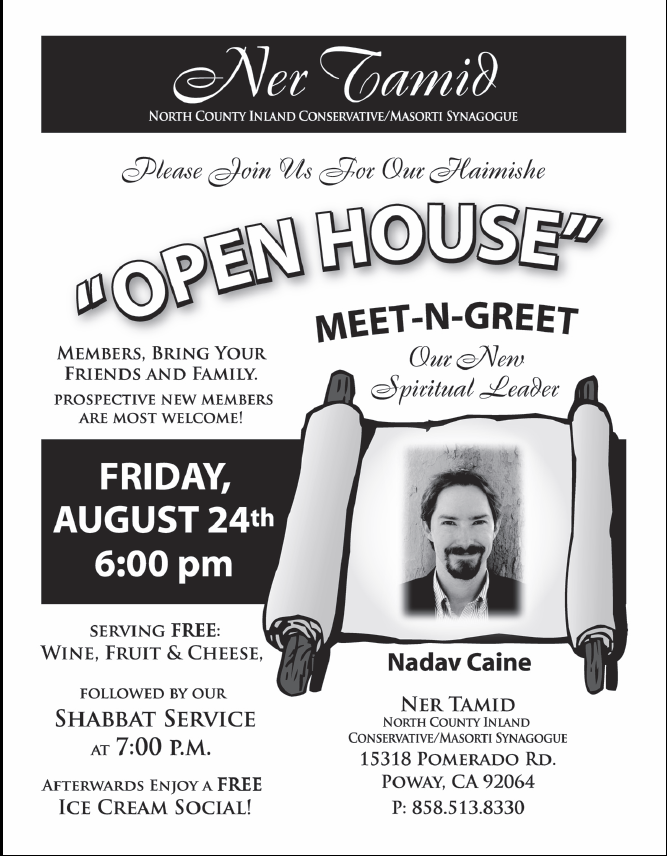
 "Israel demanded reparation payments from Germany, but
did not allocate them in a just and logical manner to
those who needed them," Itzik said, adding: "We are here
to rectify the situation so that we may be able to look
into the survivors' eyes, and tell them on behalf of
Israeli society: 'We
"Israel demanded reparation payments from Germany, but
did not allocate them in a just and logical manner to
those who needed them," Itzik said, adding: "We are here
to rectify the situation so that we may be able to look
into the survivors' eyes, and tell them on behalf of
Israeli society: 'We 



 The following is a brief statement from
U.S. Senator Dianne Feinstein (Democrat,
California).
The following is a brief statement from
U.S. Senator Dianne Feinstein (Democrat,
California).

 The
aid was flown by a Peruvian military plane to the city of Pisco (which was hard
hit by the earthquake). Ambassador Walid Mansour accompanied the shipment and
delivered it personally to the Peruvian authorities. An emergency command post
was set up in the local army base to assist the victims of the earthquake.
Ambassador Mansour took advantage of the visit to assess the progress of the aid
work.
The
aid was flown by a Peruvian military plane to the city of Pisco (which was hard
hit by the earthquake). Ambassador Walid Mansour accompanied the shipment and
delivered it personally to the Peruvian authorities. An emergency command post
was set up in the local army base to assist the victims of the earthquake.
Ambassador Mansour took advantage of the visit to assess the progress of the aid
work. 